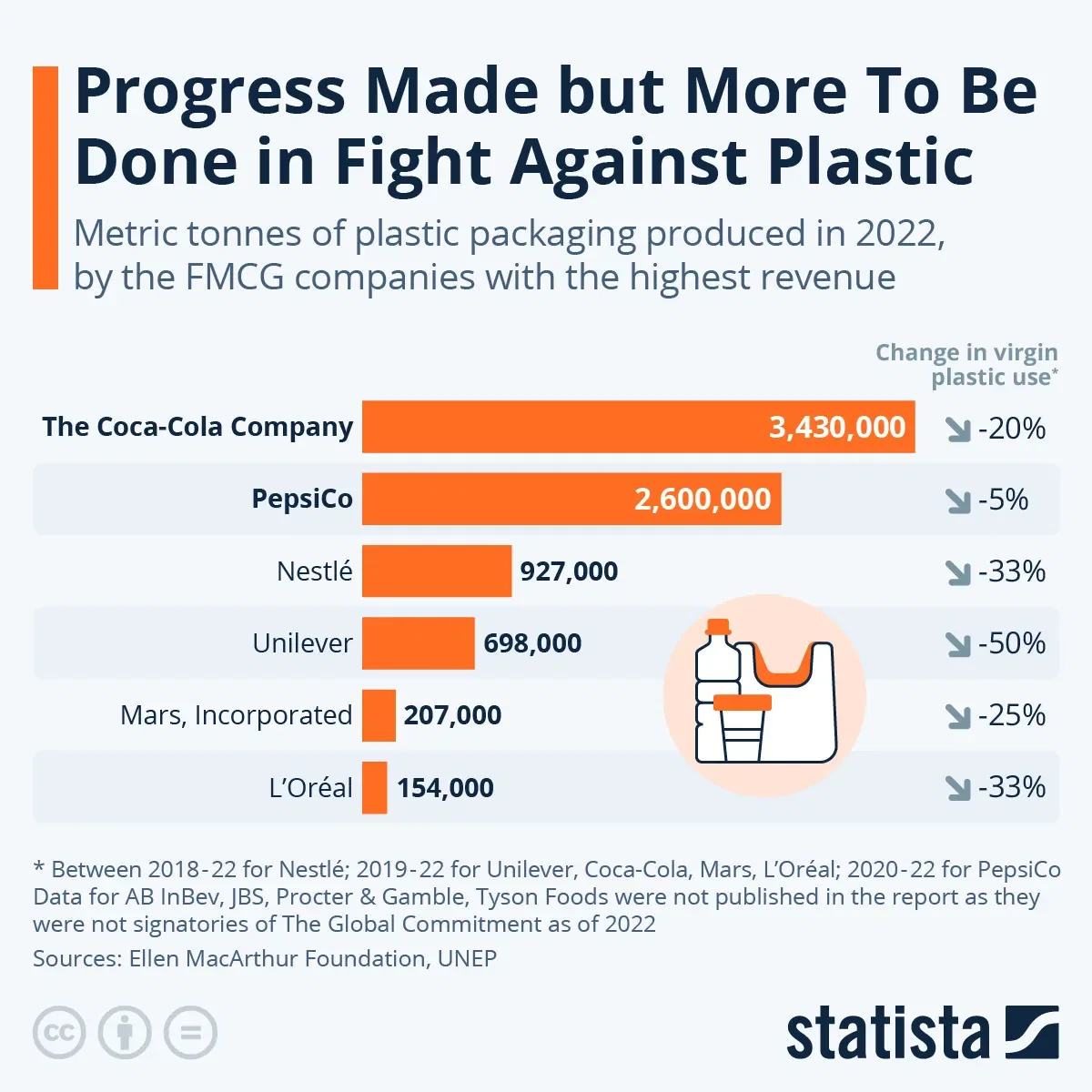Where Data Tells the Story
© Voronoi 2025. All rights reserved.

In 2018, the Ellen MacArthur Foundation together with the UN Environmental Programme, launched an initiative to help move the world towards a future with a circular plastics economy. They called it the Global Commitment and in the first five years managed to get over 1,000 organizations and 55 government signatories to pledge to join it, committing to 2025 targets aimed at stopping plastic packaging becoming waste.
The following chart pulls from data from their five year report, highlighting how six of the 10 biggest FMCG (fast-moving consumer goods) companies worldwide in terms of highest revenue, have signed up to the commitment and since doing so, reduced their virgin plastic use. While the reduction in plastic use is significant, particularly in the case of Unilever which saw a 50 percent drop between 2019 and 2022, this data also highlights how there is still a long way to go, with over 8 million metric tonnes of plastic packaging produced by just these six companies in 2022 alone. The company to have produced by far the most plastic packaging in 2022 was The Coca-Cola Company at 3,430,000 metric tonnes.
According to the report, businesses who are signed up to the Global Commitment are outperforming their peers, having avoided nearly three million tonnes of virgin plastics production a year compared to a business as usual model and more than doubled their share of recycled content, which has in turn reduced greenhouse gas emissions.
Despite this progress though, the world remains off track, with the report writers adding that 80 percent of the global plastic packaging market has not yet signed up to the commitment and even within the group, there is significant variation in performance.